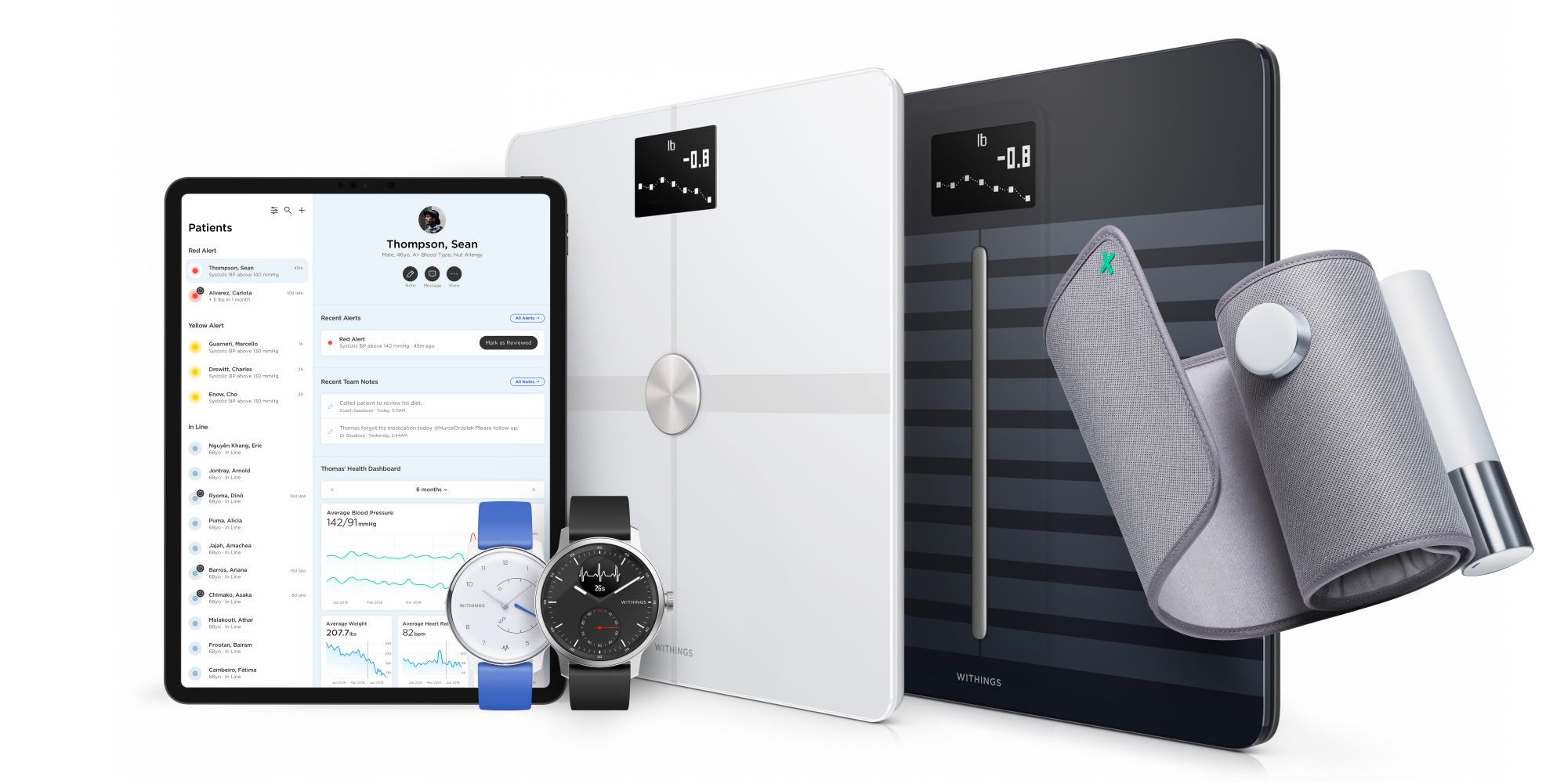
Withings, which makes an array of smart scales, blood pressure monitors, and other connected health devices, raised $60 million in funding. Photo credit: Withings
With $60 million in new funding, medical device startup Withings plans to carve out a new strategy for its connected health devices.
The Paris-based company has been making connected blood pressure monitors, scales and smartwatches for the better part of the last decade. But since it was bought by Nokia in 2016 — and sold back to co-founder Éric Carreel two years later — Withings has shifted its focus from consumers to medical professionals.
“The wellness connected device market is really crowded and it also seemed to plateau,” Withings CEO Mathieu Letombe said in a phone interview. “I think there is much more room for innovation when it comes to being able to prevent or monitor chronic disease.”
Last year, the company launched a new business-to-business division, Withings MED PRO, which is developing tools for remote patient monitoring. It is building a dashboard for physicians to help them keep track of patient metrics, such as blood pressure, and receive reimbursement. Payers, coaching platforms and researchers would also be able to tap into these tools.
Gilde Healthcare, and previous investors Idinvest Partners and Bpifrance led the $60 million funding round. Withings also plans to use the additional funds to add 100 positions in the U.S. and France this year.

A Deep-dive Into Specialty Pharma
A specialty drug is a class of prescription medications used to treat complex, chronic or rare medical conditions. Although this classification was originally intended to define the treatment of rare, also termed “orphan” diseases, affecting fewer than 200,000 people in the US, more recently, specialty drugs have emerged as the cornerstone of treatment for chronic and complex diseases such as cancer, autoimmune conditions, diabetes, hepatitis C, and HIV/AIDS.
“With telemedicine on the rise, and the wider health industry’s growing need to collect and analyze accurate, reliable patient data, Withings is in a unique position to thrive and is an attractive investment for us,” Gilde Healthcare Managing Partner Edwin de Graaf said in a news release.
The company has also been building out a regulatory team for the past two years, which it plans to grow further with the new funding. In that time, Letombe said he had seen remote patient monitoring gain additional traction, starting in the U.S.
“We saw a lot of things with remote patient monitoring. We saw reimbursement codes validated by CMS. We saw the pharma world was willing to digitize clinical trials,” he said. “We are raising money now to expand our reach in the B2B market with a strong focus in the U.S.”
Covid-19 has further accelerated that interest, as patients seek to manage chronic conditions from home. In the past few months, Letombe said he has seen the volume of requests from physicians increase, as well as a bump in consumer device sales.
“I think this is obviously where the way we take care of health is headed and Covid-19 has highlighted that over the last few months,” he said.
Ludwig-Maximilians University of Munich is also testing one of the company’s devices, ScanWatch, to monitor patients at home with both a cardiovascular condition and Covid-19. The watch will be used to track patients’ heart rhythm and oxygen saturation, and patients will have access to a 24-7 medical hotline, with the goal of reducing unnecessary hospitalizations.













